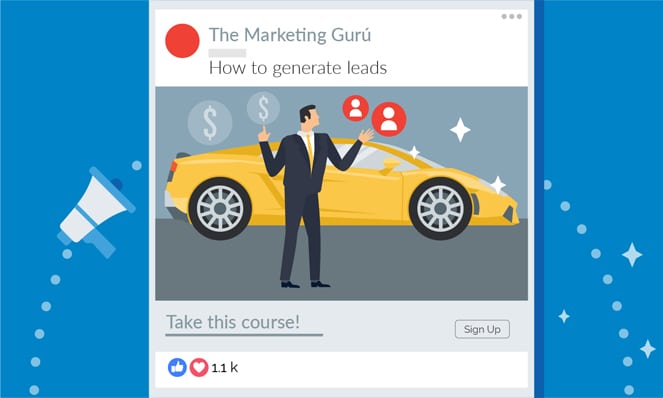What Does Lead Generation Mean For My Business?
Generating leads is vital to the success of every business. The more leads you have, the more customers you will have and most importantly, this creates a steady profit and reliable growth for your company. One of the biggest concerns we hear from small businesses about generating leads is that they don’t understand what lead generation means specifically for their needs or how it applies to their specific industry.
What Is A Lead?
Someone who has expressed interest in your goods or service is referred to as a lead. This lead can originate from a variety of places. Your website, word of mouth, social media campaigns, and even a phone call are possible ways. To demonstrate their interest, these leads may be required to complete a form on your website or answer questions. After that, you’d contact them to try to offer them your product or service.
You can qualify your own leads by asking particular questions to guarantee that they are interested in your goods. Some third-party lead generation providers sell you leads that haven’t been qualified. And this can cause you to squander money – and time! – on leads that aren’t likely to convert.
What Is Lead Generation?
Consumer interest or inquiry into a company’s products or services is sparked through lead generation. Leads can be generated for a variety of objectives, including list building, e-newsletter list acquisition, and sales generation. The means for generating leads are often classified as advertising, however, non-paid sources like organic search engine results or referrals from existing clients may also be used.
Lead generation is the process of attracting interest (or a “lead”) for your business directly from a potential customer. This means that businesses can convert 100% of those leads into sales. It’s important to note that these leads have never even heard of your company before, so they are completely new customers with no previous history with your brand.
What Is The Importance Of Lead Generation In Business?
A company’s lead generation is crucial. Without it, a company will struggle to grow and produce sales. A robust lead-generating strategy is essential for every company. As a business, you’ll have a hard time generating leads because you’re not sure who you’re trying to market to.
Many companies now rely significantly on lead generation to drive traffic to their websites, where leads can be converted into consumers. Google has simplified the process of linking individuals with businesses, allowing businesses to showcase how their products and services vary from those of their competitors to the rest of the globe. It lets you reach out to a consumer base that is actively looking for your product or service on the internet. Furthermore, directing the lead to your website enhances the likelihood of the lead making a purchase from your company.
A more engaging website attracts the attention of a potential customer who is looking for a specific product or service. It distinguishes your company from the competition and raises the likelihood of conversion. A potential consumer is more likely to offer their contact information to an interesting website than to a boring page with no interaction.
The Challenges of Lead Generation
It isn’t always simple to generate leads. It is the most significant difficulty that many marketers face. The following are some of the most difficult aspects of lead generation:
- The success of lead-generating operations is measured, tracked, and reported.
- Having enough time and resources to devote to lead generation is essential.
- Generating high-quality leads who are more inclined to buy from you
- Having a massive number of leads
- Having enough time and resources to devote to lead generation is essential.
Being aware of these obstacles can aid you in overcoming them and generating leads without wasting resources.




